Farmers bring tractors to Dean Recreation Reserve in protest of AEMO and AusNet power line plans
Scores of farmers brought two-dozen tractors to Dean as tensions about the Western Renewables Link project continue to simmer. See the latest.
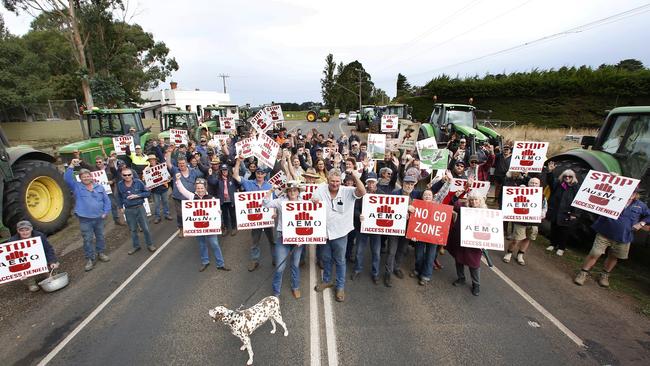
Ballarat
Don't miss out on the headlines from Ballarat. Followed categories will be added to My News.
Representatives of the company behind a power line project in the state’s west were heckled and taunted by opponents of their plans as they left a community meeting.
Some 80 farmers and nearby residents lined about two-dozen tractors down the road outside the Dean Recreation Reserve, northeast of Ballarat, where proponents of the Western Renewables Link held community discussions about their project on Tuesday afternoon.
The Australian Energy Market Operator and AusNet’s 190km power line – previously called the Western Victoria Transmission Network Project – is meant to bring solar and wind energy from the state’s west into the national electricity grid and power half a million Victorian homes as coal-fired power stations close.
Resistance to the plans have become familiar features of the central and western landscape over past years and were perhaps most loudly proclaimed by young farmer Joee Aganetti Fraser, who ploughed the phrase ‘Piss off AusNet’ into a hill.
Despite recent changes to parts of the proposal, those against the plans continue to believe that large transmission towers would be detrimental to agriculture, the environment, and the region’s visual appeal.
Most would prefer the power lines be put underground along the Western Highway.
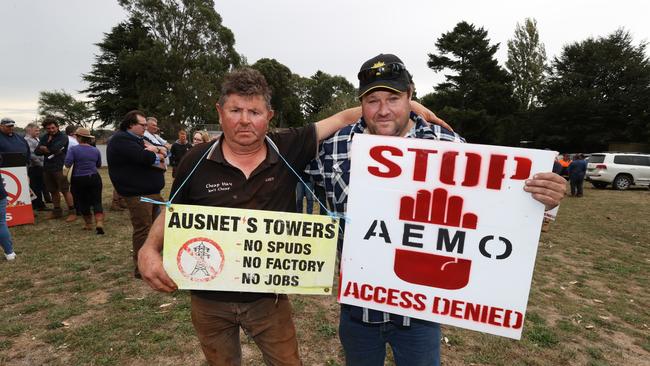
“We’ve got a wonderful community and you clowns have come in and tried to f--k it over” said Will Elsworth, organiser of the Piss Off AusNet group, to the meeting attendees.
“You’ve tried to give money to sporting clubs. And the people at the sporting clubs and the community groups have said, ‘We’re not touching your money’. It’s a real disgrace.
“ … It’s an utter disgrace and it’s happening in Australia in this day and age. This is like eastern Europe, this stuff. It’s disgraceful.”
He said afterwards that affected landholders would have been more accepting of the plans had they been approached earlier and with less confrontation.
“If they’d come at the start and said, ‘We’re looking at undergrounding,’ and done it in a proper manner and held a public meeting, they probably would’ve got half the people saying, ‘Well, we’ll give them a fair go, we’ll listen,’” he said, “but they’ve come in and they’ve tried to crash the whole place.”
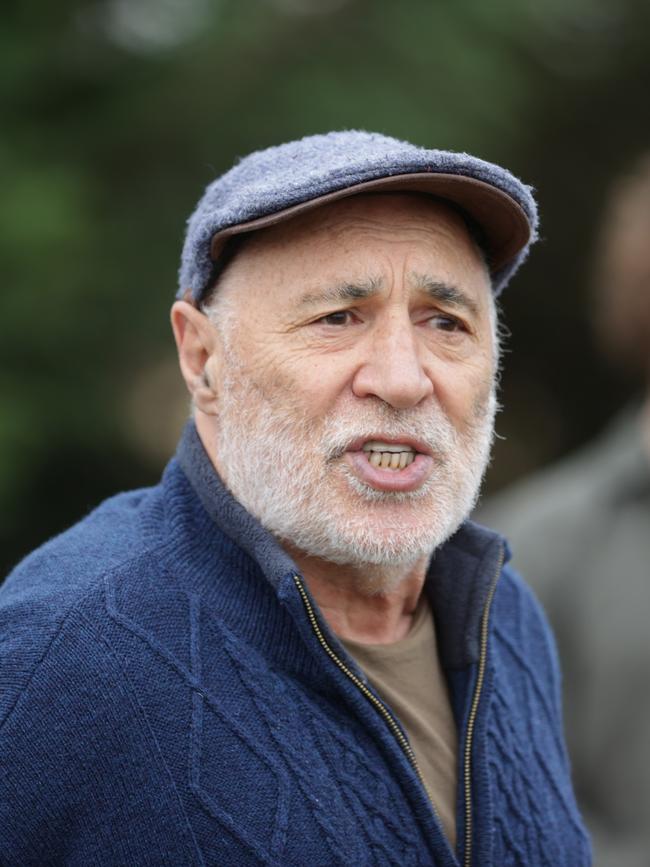
Phil Cleary called it an “act of vandalism’ upon land “rich in history”.
“The people are sick of bureaucrats marching into their patch and telling them how to create infrastructure,” he told the crowd.
“They have not thought about the consequences of this project; they haven’t consulted experts, people in the territory, about what is wrong with this project.
“They talk about it as if it is about renewable energy. But what is the cost of this particular renewable energy strategy? A loss of economic wellbeing for so many people in that region, a loss of property values, the destruction of a food bowl which is excellent and world-class.”
Several AusNet representatives departed without addressing the larger crowd and were jeered at down the driveway by a portion of their opponents.
One woman pushed a sign up against an AusNet worker to block his path until other farmers encouraged her to make way.
A source close to the WRL project said the company brought security to the meeting because some of its employees received serious threats from people involved in the protest group.
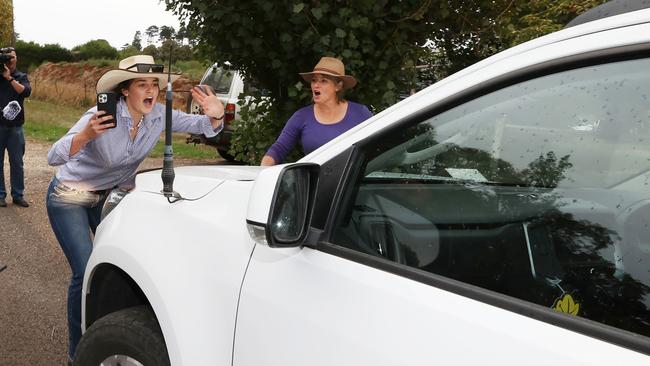
AEMO CEO Daniel Westerman, to the benefit of his reputation among some of the farmers, stayed to speak with individual protesters and gave an interview to media.
He said there was a need to mend the inequality between those burdened with infrastructure and those reaping the benefits of it.
“I think mistakes have been made in the way that the community hasn’t been adequately engaged early enough in the process,” he said.
“ … I think the way forward for us on the Western Renewables Link with this community and others that are affected is to have as much open and honest dialogue as we can, and that’s what we’ve been trying to do here today.”
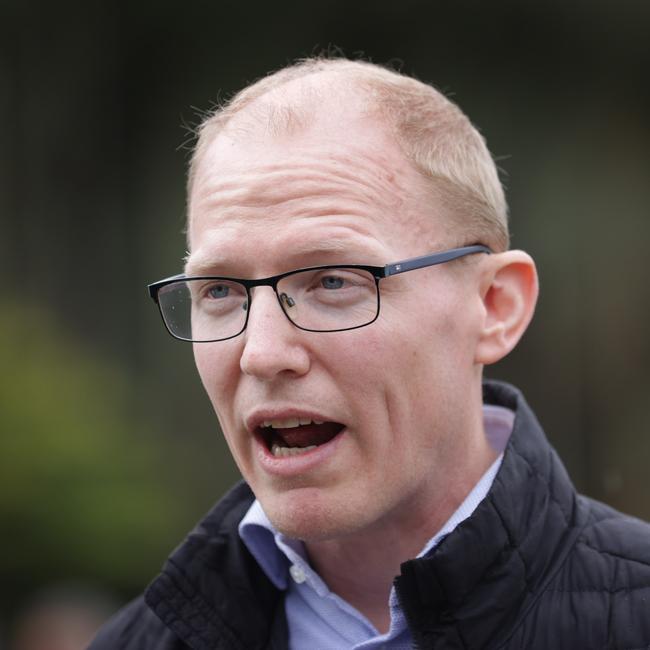
He said the cost of putting the whole project underground would be 10 times that of erecting overhead power lines – an extra expense which he said would be passed on to consumers through transmission charges.
Some amount of “undergrounding” will be considered under the Environmental Effects Survey currently being completed, which AusNet said would be submitted to the state government later this year.
Farmer Rob Lockhart said Mr Westerman’s acknowledgment there was a “trust issue” pointed to a “systemic problem” with contractors like AusNet which, in his view, “conduct themselves in a way which is rather intimidating and bullying to some landowners and some communities”.
“My preference would still be to put it underground down an easement, which is in place, down the Western Highway,” he said.
“The cost to this region from Bacchus Marsh to nearly to Waubra will be, over the course of one or two hundred years, a sum which can never be repaid.”
AusNet CEO Tony Narvaez said in a statement that speaking with locals was “vital” and the company was “always looking at ways to improve”.





